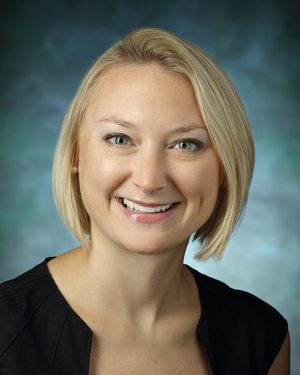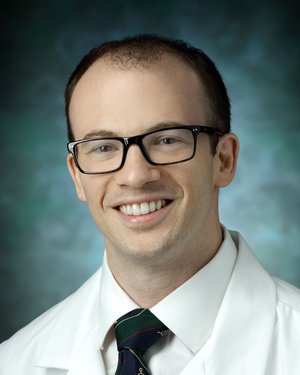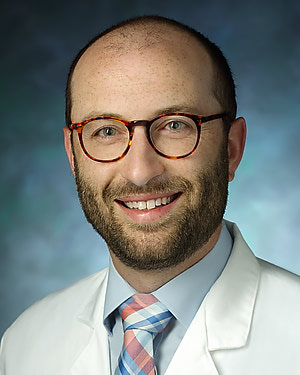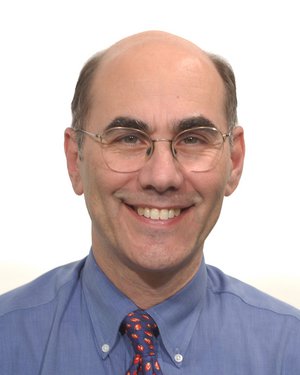Neuro-Ophthalmology Fellowship
The Neuro-Ophthalmology Fellowship at the Wilmer Eye Institute began in 1976, and was the first program of its kind accredited by the Association of University Professors of Ophthalmology (AUPO).
This one-year program provides fellows with expert knowledge and comprehensive experience in the diagnosis and management of patients with neuro-ophthalmologic disorders.
Disorders managed include:
- Disorders of the visual sensory system (e.g., optic nerve disorders, chiasmal syndromes, and post-chiasmal visual field loss)
- Disorders of the ocular motility (e.g., ocular motor nerve palsies, supranuclear disorders of gaze, and myasthenia gravis)
- Abnormalities of pupil size and reactivity
- Disorders of higher cortical function
Specific goals and objectives are based on six core competencies:
- Patient care
- Medical knowledge
- Interpersonal skills and communication
- Professionalism
- Systems-based practice
- Practice-based learning
Program Curriculum
-
The fellowship training program in neuro-ophthalmology is organized to provide a stable, well-coordinated, progressive educational experience in the neuro-ophthalmologic spectrum of ophthalmic diseases, so that the fellows may develop diagnostic, therapeutic, and manual skills as well as sound judgment in their application.
The Neuro-Ophthalmology Fellowship is a non-surgical fellowship. Fellows are expected to build on existing patient care skills and develop further competency in managing conditions of the visual sensory pathway from the optic nerve to the striate cortex, ocular motor nerves, extraocular muscles, and pupils. For fellows who are interested, there also are opportunities for experience related to electrophysiology and/or vestibular disorders.
Specific skills that are emphasized include:
- Testing of visual acuity and color vision
- Testing of the visual field using static and kinetic perimetry
- Assessment of ocular motility and alignment
- Assessment of pupil size and reactivity
- Detailed assessment of the appearance of the optic disc
Use of advanced ophthalmic imaging techniques, such as optical coherence tomography, optical coherence tomography angiography, and fluorescein angiography, and their effective integration into clinical practice, also are emphasized.
-
Fellows regularly perform patient assessments in the daily neuro-ophthalmology clinic. However, full-time division faculty supervise all clinic experience by fellows. Fellow night and weekend calls occur from home and are not typically burdensome. Nevertheless, a faculty second-call individual is always available.
All emergency or urgent cases are triaged in the Johns Hopkins Hospital Emergency Department by the ophthalmology residents. Any cases discussed with the fellow are discussed either immediately or the next day with a faculty member, all of whom are available by cell phone.
-
Didactic sessions include regular teaching/work rounds, at which each patient is reviewed and formal presentations are given by the fellows relating to conditions they have encountered during the prior week. There are fellow teaching conferences presented by the faculty to enhance knowledge of neuro-ophthalmologic disorders and their management. There are also monthly journal clubs for the fellows, with fellows being expected to review all pertinent material.
In addition, all fellows are expected to attend monthly neuro-ophthalmology/oculoplastics conferences (held in the evening), and to attend weekly ophthalmology grand rounds (held in the morning before clinic). Fellows are expected to present at neuro-ophthalmology grand rounds once or twice annually.
-
During the course of the fellowship, fellows spend a minimum of 20% of their time participating in various research activities, which may be clinical, translational, or basic science, depending on fellow preference. Their preceptors for these projects depend on the nature of the project but include full-time and part-time faculty of the Johns Hopkins University School of Medicine.
Fellows are encouraged to submit to and present at national meetings, including the North American Neuro-Ophthalmology Society (NANOS) Annual Meeting.
Publication of research also is encouraged.
-
Fellows play a major role in teaching residents and medical students in the clinic. As the fellows alternate call responsibilities with the faculty, they have the potential to teach when they are contacted by the residents from the emergency room or when a resident requests assistance with his or her clinic patient.
-
Faculty conduct monthly one-on-one meetings with individual fellows. At these meetings, curriculum and performance are addressed. A fellow's performance is addressed quarterly with input from all neuro-ophthalmology faculty and other divisional staff with whom they interact.
Comments from technicians, clinic staff, residents on the neuro-ophthalmology rotation, and patients (if applicable) are sought and incorporated into the quarterly evaluations to provide 360-degree feedback.
Requirements for Applicants
Applicants must have completed an ophthalmology or neurology residency at a program accredited by the ACGME prior to the start of the fellowship. In addition, exceptionally qualified foreign medical graduates who have done an internship and ophthalmology residency abroad, have a valid Educational Council for Foreign Medical Graduates (ECFMG) certificate, and have passed the USMLE Steps 1, 2, and 3, can be considered for these positions. Applicants for the fellowship (July 2024 start date and beyond) must register and apply for the Ophthalmology Fellowship Match (subspecialty Neuro-Ophthalmology) through the SFMatch website.
Applications are reviewed by the program director and the division faculty, and appropriate candidates are invited for an interview. One or two positions are available each year, depending on the number of qualified candidates and available funding.
Diversity is a key component of excellence at the Wilmer Eye Institute. We are seeking fellowship candidates who embrace and reflect diversity, in its broadest sense.
Please direct questions to:
Stacy Alexander, Fellowship Program Coordinator
Email: salexa45@jhmi.edu
Amanda D. Henderson, M.D., Fellowship Director
Email: ahende24@jhmi.edu
600 North Wolfe Street, Wilmer 233
Baltimore, Maryland 21287
Phone: (410) 502-3213
Fax: (410) 614-9240





